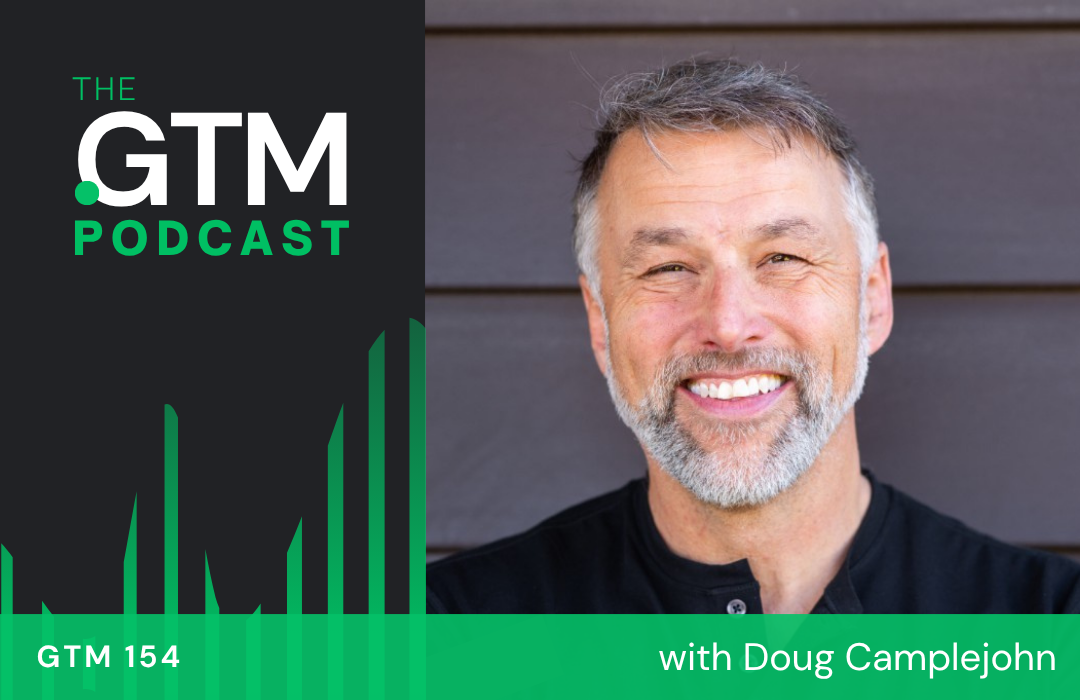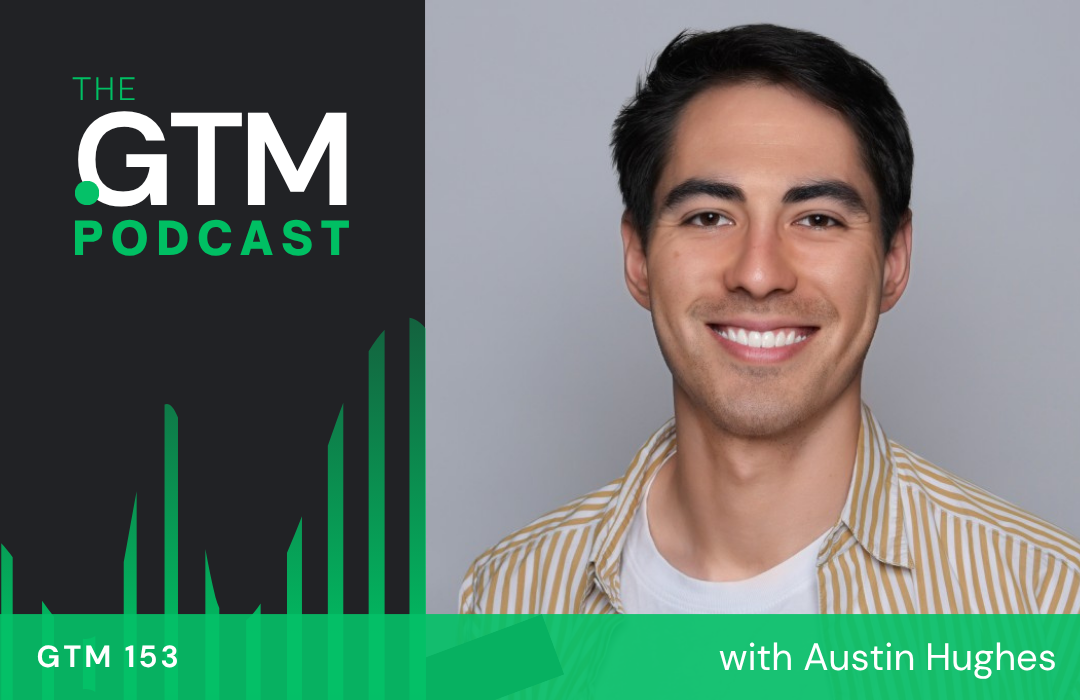On episode 14 of the Sales Hacker podcast, we speak with Brad Svrluga, Founding Partner at Primary Venture Partners about the top seed funding tips for startups.
If you missed episode 13, check it out here: Using the Science of Perfect Timing to Improve Sales Outcomes
What You’ll Learn
- The current state of the investment market in New York
- How to build an executive team that works well with investors
- What tools the best VCs are using to help their portfolio companies grow
- How Primary Ventures is using the concept of market development
- Managing expectations with your BOD as a VP of Sales to ensure long term success
Subscribe to the Sales Hacker Podcast
Show Agenda and Timestamps
- Show introduction [0:10]
- About Brad Svrluga [02:15]
- Primary Ventures [2:34]
- Choosing the stage, location, and industry [7:51]
- Pros and cons of the New York City ecosystem [14:16]
- Evaluating talent [19:07]
- Questions from the audience [27:52]
- Sam’s Corner [43:24]
Sales Hacker Podcast—Sponsored by Aircall
Sam Jacobs: Hey everybody, welcome to the Sales Hacker podcast. It’s your host Sam Jacobs. We’ve got an incredible episode coming up.
Today, we’ve got Brad Svrluga, who’s a general partner and founding partner of Primary Ventures, one of the best early stage investors in New York. We’re really excited about this episode.
We recorded this episode on a boat during a retreat with Sales Hacker and had some of the best folks from the New York Revenue Collective and other VPs of Sales. Hope you enjoy this interview. It was live in the middle of the Hudson River!
Sam Jacobs: We also want to thank our sponsor. This month’s sponsor is AirCall. Aircall is this phone system designed for the modern sales team they seamlessly integrate into your CRM, eliminating data entry for your reps and providing you with greater visibility into your team’s performance through advanced reporting.
About Brad Svrluga: Baseball Card Stats
Sam Jacobs: Welcome back to Sales Hacker Boat Day. I’m your host Sam Jacobs. We’ve got somebody really special. Brad Svrluga who is the founding and General Partner of Primary Venture Partners and one of the best and leading early stage investors in New York City. Welcome, Brad!
Brad Svrluga: Thank you.
Primary Ventures
Sam Jacobs: Tell us about yourself and also tell us about the origins of the firm that you and Ben started.
Brad Svrluga: Great, so Primary Venture Partners is a firm that I started with my partner Ben Sun about four years ago now. We are 100% seed investors as our point of entry and nearly 100% focused on New York City and the ecosystem here.
Our approach is, compared to a lot of our seed investor peers, considerably more concentrated. We’ll do seven, eight, nine deals a year. A lot of our firms in our peer group are doing 20 or 30. Both are perfectly valid ways to run a firm and to make money in this business but I think what fuels Ben and I and what gets us out of bed every day is like real relationship-driven partnerships with founders. These are incredible founders and you just can’t do that if you’re doing 30 deals a year.
Choosing the Stage, Location, and Industry
Sam Jacobs: You’ve made a couple very specific decisions that I think would be interesting for the room to hear about. There’s probably two of which you mentioned. One is the stage, which is seed.
The second is the city, which is New York, and then the third is what you haven’t touched on. To what extent is there a thematic focus or an industry focus?
Brad Svrluga: Seed — that’s just a personal taste thing I think for us. We’re kind of human-driven investors.
We knew we would be heavily New-York biased. As we started building out more and more of the operational capabilities, we started realizing that if we were geocentric, there were things that we could do with them that we would not be able to do if we were trying to serve as a portfolio company in Chicago or Atlanta or God-forbid, the Valley.
Then there’s just an enormous amount of efficiency and effectiveness! We can walk from our office on 21st Street to all but two of our portfolio companies in less than 15 minutes.
I spend all my time on B2B application businesses but I’m relative generalist within that world.
Pros and Cons of the New York City Ecosystem
Sam Jacobs: New York City — so I’m sure you have a lot of different points of view. There’s benefits to this ecosystem and then there are disadvantages. Walk us through your perspective on the state of starting a business in this broadly defined metropolitan area?
Brad Svrluga: I like to call New York two things: one is the customer capital of the universe and the other is the domain expertise capital of the universe.
When you think about vertical SaaS companies that I think are best, they are started by people who come out of those industries. Those businesses should not be started by two kids at a Stanford Business School classroom or a Harvard Business School classroom. Those businesses should be started by people who are coming out of industry solving their problems.
We have way more industry concentration in this market than anywhere else on the planet.
It’s certainly a war for talent.
Evaluating Talent
Sam Jacobs: Talk us through how you evaluate both a founder and when you know the team is the right team.
Brad Svrluga: The single greatest indicator of success when it steps off the elevator is a group of people who have operated and executed together before.
If you can, just check some cultural gelling of the team, integration of that team early on, and effective operations amongst the core group at the very beginning.
And then on the founder, the thing that we have increasingly gotten focused on is just the raw salesmanship and business acumen of the founder.
Questions From the Audience
Audience: We did a segmentation analysis, and we have a couple smaller segments that were not the best fit, not as profitable. And what I’ve been doing is just heavily reducing resource allocation against that segment and barely serving them. How do you feel about doing that as opposed to actually turning away inbounds?
Brad Svrluga: It depends on the degree which you really understand the cost to serve those different segments.
And that’s the other piece of this. It’s one thing to figure out where can I get to yes most effectively. And then it’s another thing to understand the true cost of acquisition and ongoing service of those customers. So, if you’ve done that analysis, and these ones that are just landing in your lap, great. Sign them up.
But the thing I didn’t state it before about segmentation and focus that’s important is make sure you don’t compromise your messaging to try to continue to talk to them. Are you compromising the language you use in your collateral on the web and your white papers? Who are you best served for?
Sam’s Corner
Sam Jacobs: Hey, everybody, it’s Sam’s Corner. What a fun and really outstanding interview with Brad. I’ve known Brad for a couple of years now, and he is always insightful. It’s always great just to hear the investor perspective, on the job we as salespeople are doing every single day.
The message from Brad and from investors is very simple:
Transparency and honesty. Overpromising, and then last minute alerts saying “Hey, we are going to miss our number by 50%” is a no-go. So underpromise and overdeliver.
Don’t Miss Episode 15
To check out the show notes, see upcoming guests, and play more episodes from our incredible lineup of sales leaders, visit gtmnow.com/podcast-subscribe
You can also find the Sales Hacking podcast on iTunes or Stitcher. If you enjoyed this episode please give us a share on LinkedIn or Twitter.
Finally, a special thanks again to this month’s sponsor, Aircall. If you want to get in touch with me, find my social handles in my bio below.
I’ll see you next time!







